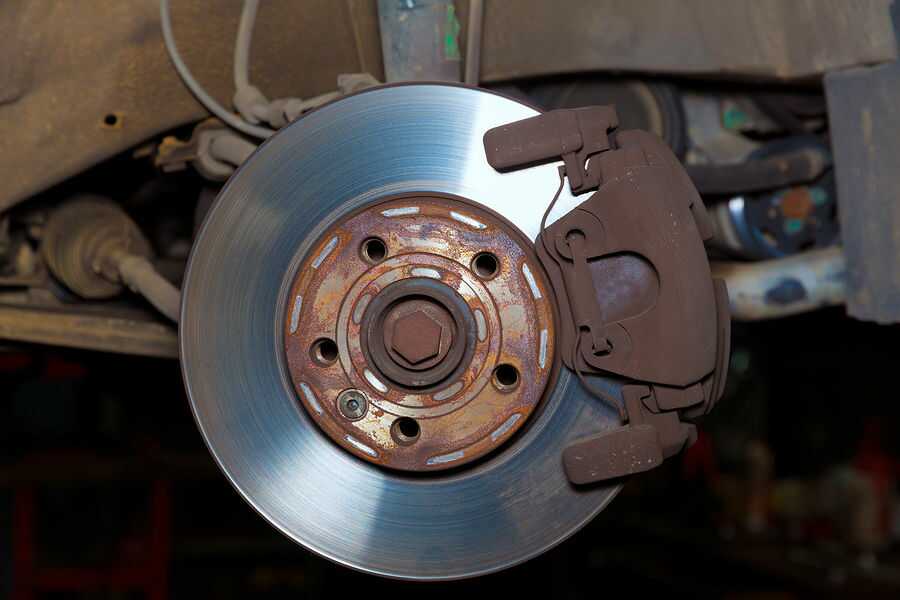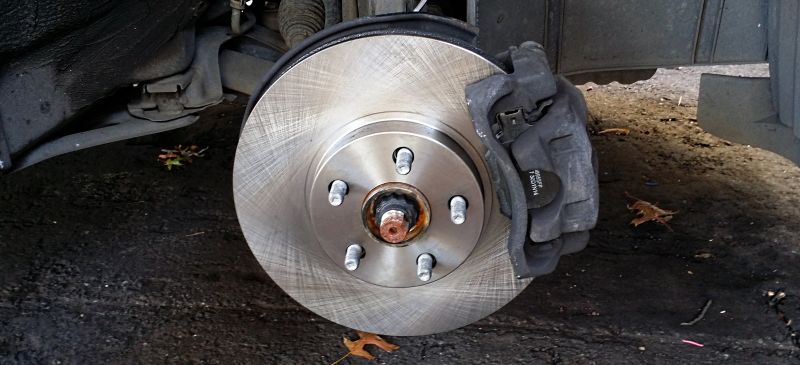One of your car’s most important systems may help you get great mileage, enhance your driving comfort, or make your car go faster- in fact, it actually slows you down! It’s your vehicle’s brake system. Your car uses a highly complex system consisting of friction material, a master cylinder, boosters, rotors and pads or drums and shoes, calipers or wheel cylinders and an intricate assembly of springs, hoses, steel lines, hydraulics, valves and sometimes computers.
Check the information below to learn more about common issues that can occur with your vehicle’s electrical system.
WARNING LIGHT
Most modern cars have a dashboard warning that alerts you when there is a potential issue with your brakes. It’s always a good idea to check your vehicle owner’s manual to familiarize yourself with your vehicle’s warning lights.
When you turn on the ignition to start your car, both the parking brake and the brake hydraulic systems light will turn on. If the parking brake light is still on after a few seconds just release the brake and the light will turn off. If your brake hydraulic light stays on there are further steps that need to be taken. If the light is intermittent and seems to come on and off depending whether you are turning the wheel, it may mean the brake fluid is low. If the brake hydraulic light stays on it means there is persistent problematic issue. We recommend having your brake system evaluated by a professional.
ODD SOUNDS

Brake grinding is always a serious issue and should not be taken lightly. There are generally two reasons brakes grind. Contact of the rotor disc with part of the brake caliper will generally result in brakes grinding and is a result of extreme wear to the brake pads or rotors. Brakes may also make grinding noises when a foreign object, such as a stone, gets lodged somewhere in the caliper. By moving your car forward and backwards repeatedly in a safe place you may be able to work the object free. If this does not remedy the problem you should take your car in to be serviced. Any foreign object in the brake mechanism can cause serious and expensive damage. If your brakes are making noises and you are not sure what it means, have the issue evaluated by a certified mechanic.
TEMPERAMENTAL PEDAL
When a brake pedal is functioning normally it should feel firm, as if it has a tight hold on the brakes. A “soft” or “spongy” brake pedal is unsafe. Driving with a soft brake pedal could place you and your passengers in danger. The most common cause of a soft brake pad is air in the brake line(s). Your vehicle’s brakes rely on a hydraulic system to operate properly. Brake fluid helps to maintain the pressure necessary to fuel the hydraulics system. If air gets into the lines, it can prevent the fluid from flowing properly, causing the brake pedal to feel spongy. Some other reasons why you are experiencing depressed or “mushy” brakes would be:

- Calipers hold the brake pads.
- Bad disc brake caliper
- Bad wheel cylinder
- Worn master cylinder
WHAT’S THAT SMELL?
The smell of melting plastic or electrical insulation is something that should never be ignored. Every electrical circuit is designed to carry a specific amount of current and when a wire or component shorts, the circuit draws more power than it can handle. Remember, where there’s smoke there’s the possibility of fire. In such case, please take your vehicle to a professional technician that is equipped to locate and repair these electrical problems before they become big and potentially dangerous issues.
VISUAL CUES
There are a few visual cues that indicate whether it is time to change your brake pads and brake fluid. Like motor oil, brake fluid can become old and worn out. Parts and debris, such as rubber in the valves in master cylinders, calipers and wheel cylinders deteriorate and end up in your brake fluid. Moisture can also get into your system leading to rust, which can also end up in the brake fluid, compromising the effectiveness and stopping power of your brakes. A good rule of thumb is to have your brake fluid exchanged by a professional every 50,000 kilometers or in accordance with your vehicle’s owner manual. Brake fluid exchange involves removing all the existing brake fluid from your system and replacing it with new, clean fluid.
A great way to visually check whether you need new brake pads is by examining them through the spokes of the car wheel. The outside brake pad is the material pressed against the metal rooter. If you see less than a ¼ inch of pad, then the brake pads are too thin and should be replaced.
PULLING
Have you ever felt like your car has a mind of its own? Like it wants to make a right or left hand turn when you’re braking or driving? If this is the case it could be indicating an issue with the braking system. First, check your brake pads to make sure they are worn out evenly on both sides. If one side is worn excessively, a sticking brake caliper probably causes it. A stuck caliper can cause friction on one wheel and not the others, which would explain why your car is pulling to one side. Also inspect the rubber brake hoses that connect to the calipers. If one of the brake hoses is collapsed it would cause your calipers to move unevenly when applying the brakes, which would apply different amounts of pressure to different wheels.
Still not sure why your vehicle doesn’t feel right and are not sure where the issue is stemming from? Don’t take chances; take it in for brake inspection by a qualified technician.
You must be logged in to post a comment Login